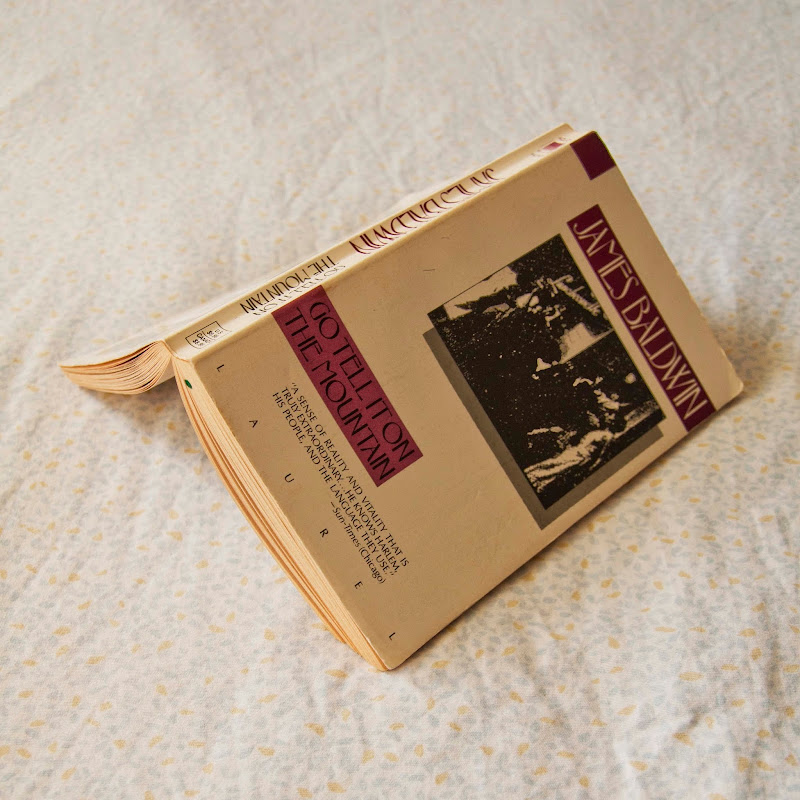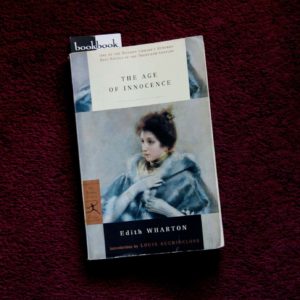There are several themes in the book. Religion is one of the most obvious. But what I found most exciting is that Baldwin’s use of darkness and light exemplifies a current theory of mine. That the dark and light are same. And neither is good nor evil. In Go Tell it on the Mountain, the dark, in its ability to cover impurity is deemed evil, whereas the light which is oblivious or in denial of what is deemed wrong remains good. Baldwin’s novel support my theory that the dark and the light is neutral. It is that which the dark protects in its nature that is sometimes evil, just as it is that which the light showcases in its nature that is sometimes good. Within both the light and dark exist good and evil. So that those who go to the dark to hide their deeds because they think them taboo can only stand to be at the mercy of their own judgement. Where as those who perform the same act in the light do not either believe it to be wrong and and if they do, do not judge themselves, and can stand the judgement of others. Gabriel’s relationship with Esther examplifies this. As a married man, and a believer in a God and his laws, he subscribed to certain rules of which, not having liaison with a woman who is not his wife was included. Esther was not governed by these rules, if anything she subscribed to the opposite of what Gabriel believed. In their relationship, therefore, Gabriel is in the dark and Esther in the light. To go into the dark is to seek to hide, but what one hides in the dark is not always that which is bad. Good is hidden in the dark, too. What Gabriel hides in his darkness is evil, and what Esther hides in her darkness is good. Gabriel conceals within his darkness his cheating on his wife and his God, while Esther conceals within it her joy and pride in love. For Gabriel the darkness is that which protects his evil deeds and for that matter he associates it with such seeds. Hence in the darkness he feels fear. Fear of that which it nurtures growing into the light. But for Esther the darkness carries that which she would rather have in the light. For it is where her joy is hidden.
Gabriel and Elizabeth’s relationship sets another example for the neutrality of the dark and light. In this instance the emphasize is the will and the purpose behind what leads one to perform an act in light or darkness. Elizabeth’s reason is love of self through love of another, and Gabriel’s is love of self through torture of another. Elizabeth craves love and when she meets Richard who is happy to give her what she desires, no price is too high for her. Gabriel wants strength over his own will to be able to surrender to God. Elizabeth does not regret her actions with Richard, nor does she regret begetting John. She would rather suffer hell on earth and in death than take back those experiences. So though she sees herself as fallen, she is proud of this fall; though she feels God is making her pay for her sins, she is willing to pay for these sins because she is not ashamed of them nor is she regretful of them. In many ways these sins are her blessings. But Gabriel is not willing to pay for his sins; not on earth and not in death. He sees the flaws in others and is willing to discuss them, but he will not face the flaws in himself. And he chooses his own punishments hoping that they will be good enough for his God. But in so doing continues to put his will before that which he wishes to bow before. Also he does not take his punishments to himself, he forces Elizabeth to share in them and punishes John with them. Elizabeth’s darkness, as is shown when she falls on her knees to pray, is that which comforts her. Her only desire is that she could know it in the light. But she is made to believe that to do so is wrong.
The darkness, whether literal or metaphorical, is therefore not evil in of itself, but what its nature allows; which is to secretly harbor what is unwilling to be known. Hence for those who expose in the light, what others entertain only in secret, the darkness is solitude and relief because it holds no phantoms, rather a secret joy. Deborah’s rape and actions exemplifies this.
You deserve textual examples, but I will not give them to you. If you have yet to read the novel or have already read it, a little attention to how light and darkness is used might explain my point. Yes, the darkness is cursed and the light glorified. But with a little more attention, it is obvious that it is not the contrasts that are flawed but the context that empties into them. In bodies, what occurs between the white policemen and Richard and even the way his death comes about is also a good example. Even the title of the novel, Go Tell it on the Mountain maintains the same notion. It seems to suggest revelation to all. But when on the mountain who is around the mountain? Here, consider John in Central Park. And if on the mountain one has an audience, in what language does the speaker address the audience? Consider Gabriel trying to bring Esther to God. Hence is the language understood by all? And if the language is universal, then what is not being said? For this consider Gabriel’s conversations with Deborah. Or Elizabeth’s with John. Which then leads to the question what is being kept in the dark? And why? But the dark always remains neutral. Whether or not it stores good or bad.
–
Jane



